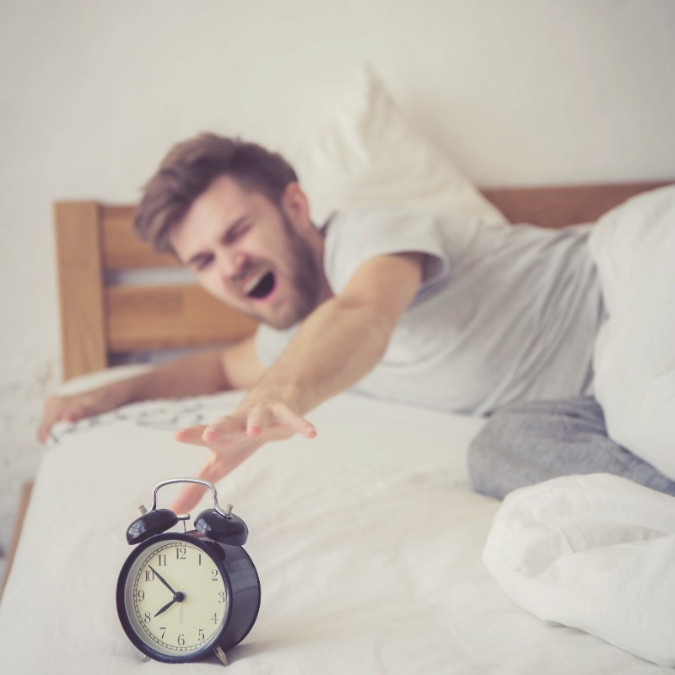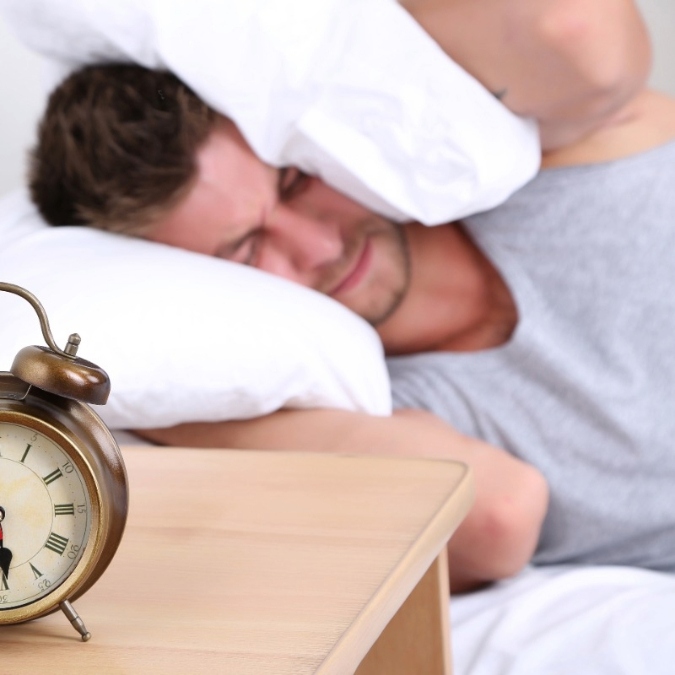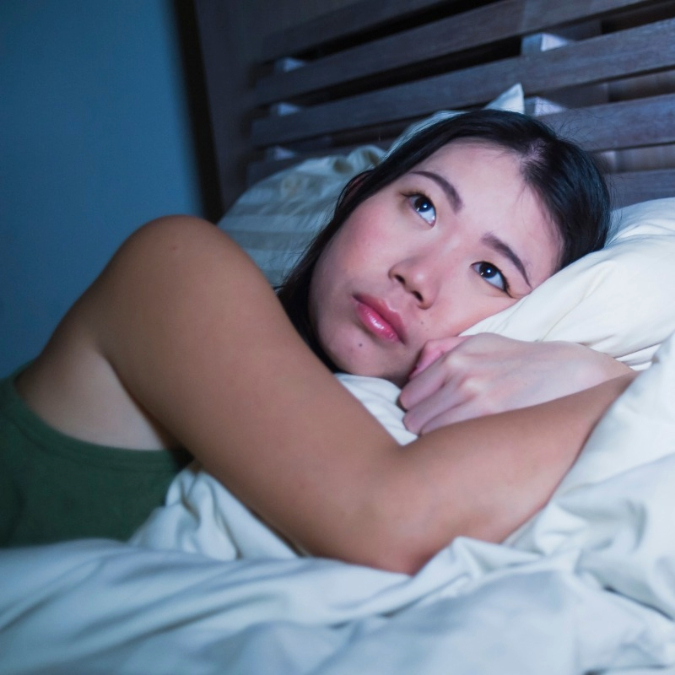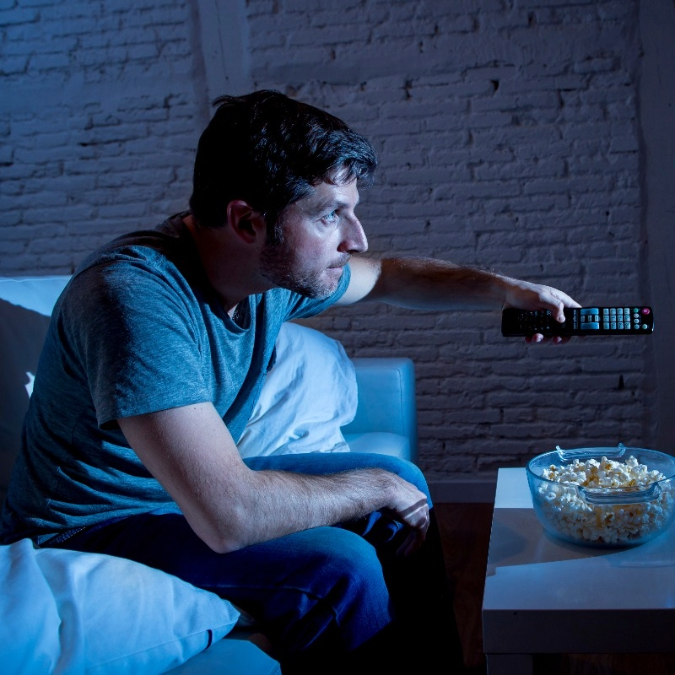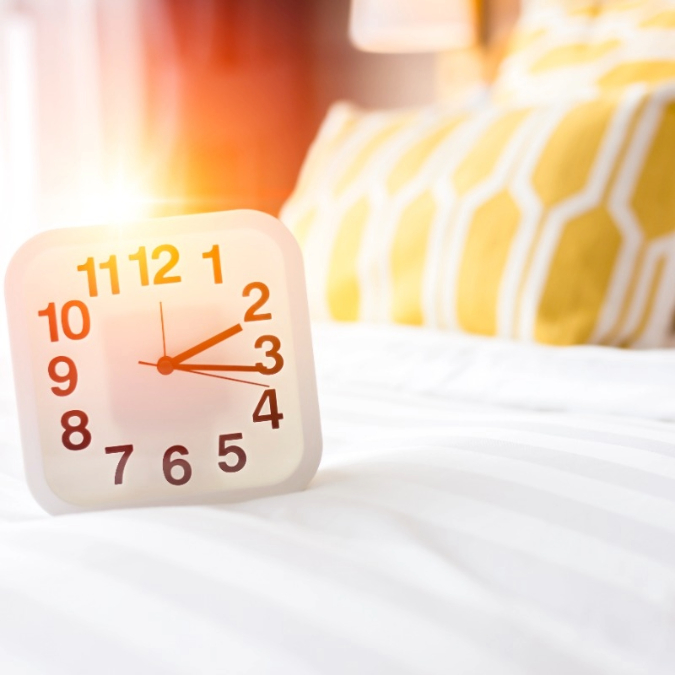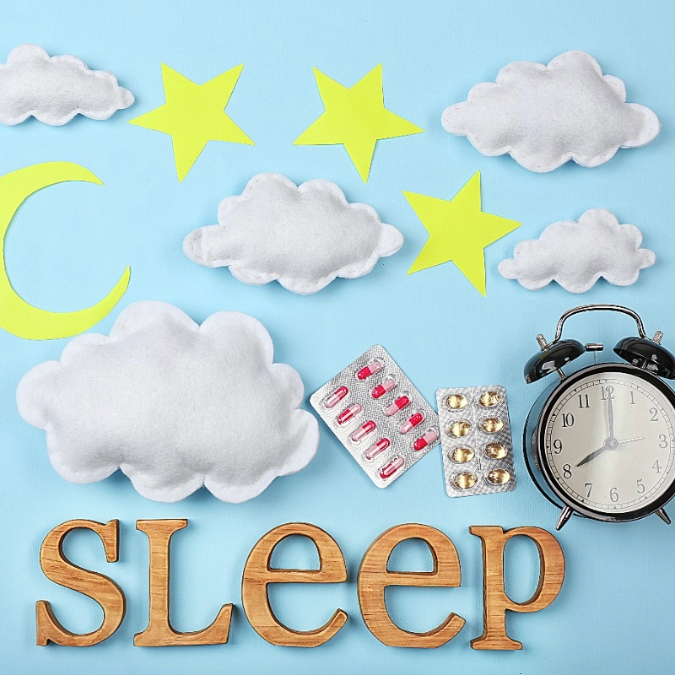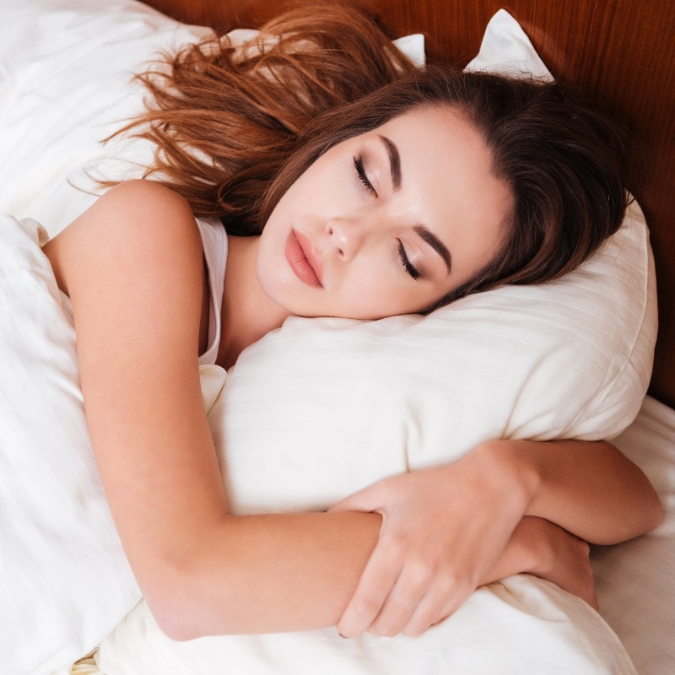If you’re having trouble getting up on time and constantly snoozing your alarms, you’re probably not getting the restful sleep you need. Many people have poor sleep hygiene that prevents them from being able to fall and stay asleep, leading to morning fatigue and problems waking up. Here are 10 mistakes you might be making at night that could be affecting your ability to hop out of bed in the morning.
1. Using Screens Before Bed
The blue light emitted by your phone and computer screen can disrupt your sleep cycle, making it harder to fall asleep and wake up on time. Although it’s tempting to scroll on TikTok at night, try to limit screen time at least an hour before bed.
2. Eating A Heavy Evening Meal
Eating a heavy or spicy meal too close to bedtime can cause heartburn or stomach discomfort and disrupt your sleep. Aim to have dinner at least a few hours before bed to give your body time to digest before lying down. If you end up needing a late night snack, have something light and nutritious to prevent indigestion, such as a banana with peanut butter or yogurt with fruit.
3. Drinking Caffeine Late In The Day
Consuming caffeine in the evening can interfere with your ability to nod off and stay asleep. Experts say you should stop consuming caffeinated beverages like green tea at least four to six hours before bedtime.
4. Not Winding Down
Engaging in stimulating activities right before bed, such as working or exercising, can make it harder to relax and fall asleep. Instead, try to establish a calming bedtime routine to signal to your body that it’s time to wind down. Low-key activities like reading or taking a warm bath can help prepare you for a good night’s sleep.
5. Sleeping In An Uncomfortable Environment
Your sleep environment plays a significant role in your ability to get quality rest. Make sure your bedroom is cool, dark, and quiet. It’s also worth investing in a comfortable mattress and high-quality pillows and bedding if you can afford to.
But if you’re on a budget, an inexpensive fabric sleep mask can help you get a better night’s rest so you can jump out of bed in the morning. Studies have shown that wearing a sleep mask increases your REM slow-wave sleep, leading to better brain function the next day.
6. Stressing About Tomorrow
Worrying about tomorrow’s tasks or events can keep your mind racing at night, making it difficult to fall asleep. Stress can interfere with your sleep patterns, so try to calm down by practicing anxiety reduction techniques before bed.
Doing deep breathing exercises, body scans, or easy yoga poses can help relax your mind and body, making it easier to doze off. Additionally, journaling about your worries and problems can get them off your mind so they don’t keep you up all night.
7. Sleep Procrastination
Many people engage in “sleep procrastination” by ignoring their feelings of tiredness and pushing themselves to stay up late. Some may do this to enjoy more leisure or social time without considering the fact that they’ll be more fatigued the next day.
According to the Sleep Foundation, sprucing up your bedroom with comfortable bedding and pillows can help make sleep seem more appealing and reduce your desire to procrastinate. Although it can be difficult with a busy schedule, carving out more self-care time during the day can also reduce sleep procrastination.
8. Inconsistent Sleep Schedule
Going to bed and waking up at different times each day can confuse your body’s internal clock, leading to difficulty waking up on time. Aim for a consistent sleep schedule, even on weekends.
9. Using Your Bed For Non-Sleep Activities
Associating your bed with activities like working, watching TV, or using your phone can make it harder to fall asleep and wake up on time. Reserve your bed exclusively for sleep and intimate activities to strengthen the association between bed and sleep.
10. Ignoring Sleep Disorders
Conditions such as sleep apnea, restless legs syndrome, or insomnia can significantly impact your ability to get restful sleep and wake up feeling refreshed. If you suspect you have a sleep disorder, consult with a healthcare professional for proper diagnosis and treatment.
Better Sleep Is Possible
Getting better sleep at night is all about consistency. Bad bedtime habits can be hard to break. But with enough dedication and persistence, you can establish a calming nighttime routine that will help you sleep well and feel more refreshed in the morning.
Read More
How I Manage Anxiety During Uncertain Times
Vicky Monroe is a freelance personal finance and lifestyle writer. When she’s not busy writing about her favorite money saving hacks or tinkering with her budget spreadsheets, she likes to travel, garden, and cook healthy vegetarian meals.
